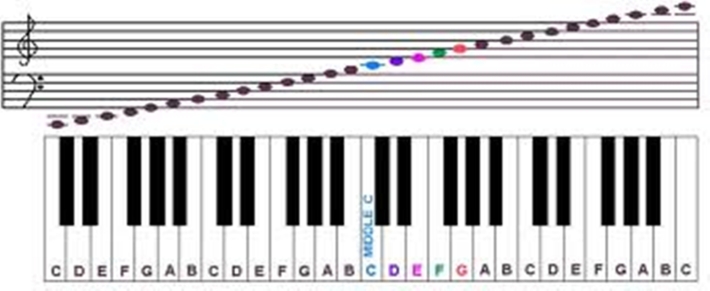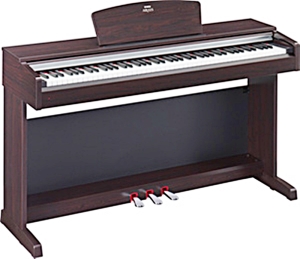I learned to play the classical guitar to a reasonable standard when I was a kid, and also experimented with finger picking to accompany my singing ‘folk songs’. I can also play the recorder and the clarinet (badly). But I never really mastered reading the base clef, probably because it was surplus to requirements – it’s not used for any of those instruments.
The piano requires using both hands: right, using the treble clef (no problem there!); and left, using the base clef, which is where the problem lies. When I learned music theory I recall that I always translated base clef music into the treble clef, the rule being:
- Think of the base clef as the treble clef;
- Shift the particular note down an octave;
- Shift it up two notes; and
- Shift it down a further octave.
It works, but not in real time!
Since I now have to read the base clef in order to play, I simple can’t go on like this. I have found that after a while you just know where the notes are; and if you don’t, you can always refer to this helpful diagram when first tackling a new piece of music.

